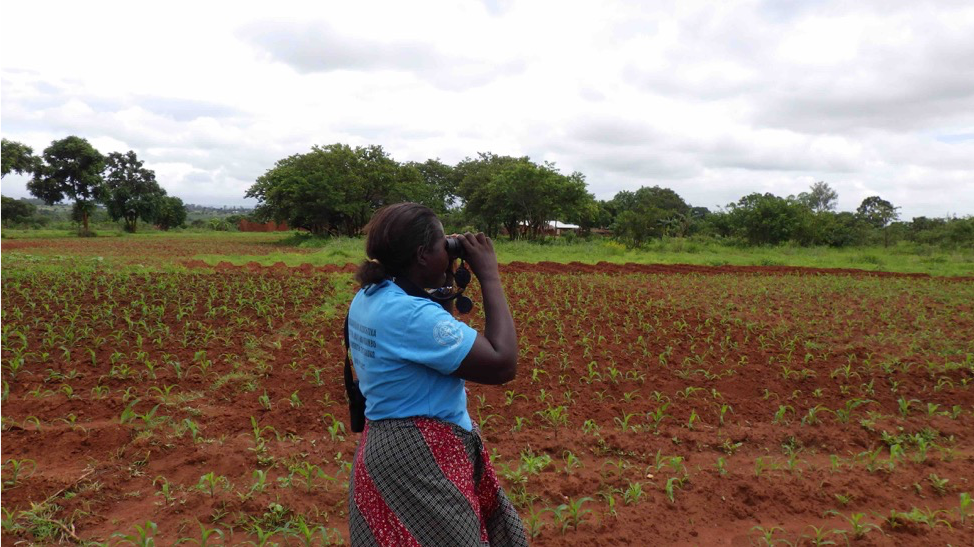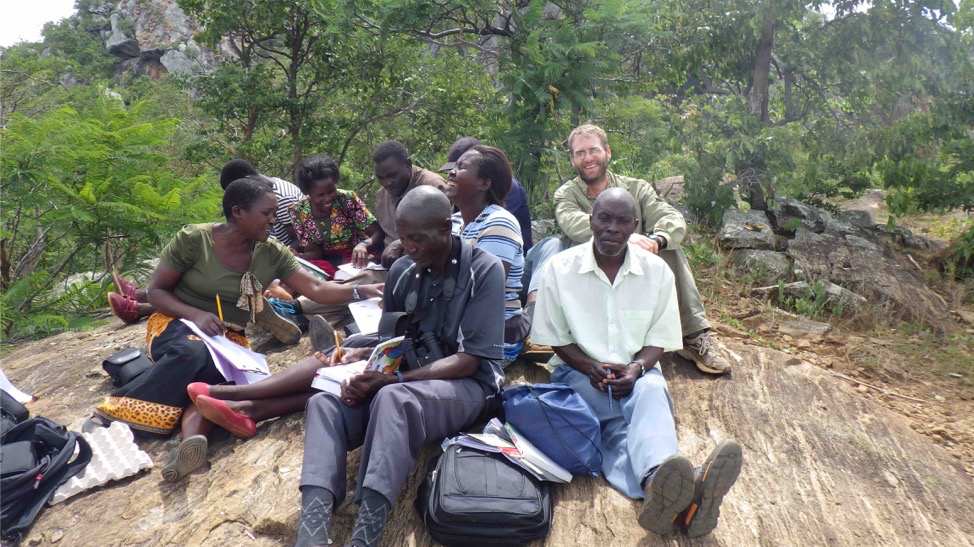Farms for Biodiversity
What is PEGASuS?
The Program for Early-stage Grants Advancing Sustainability Science (PEGASuS) seeks increase knowledge, promote innovation, and establish evidence-based solutions to the world’s most difficult sustainability challenges. PEGASuS brings together researchers from across borders and the natural and social sciences to take creative approaches to exploring the relationships between people and the planet. Our goal is to generate self-sustaining research projects that will have real impacts on the health and wellbeing of human societies.
This is the first in a series of five stories on PEGASuS: Biodiversity and Natural Assets.
Farms for Biodiversity
By Stephanie Enloe, Cornell University; Catherine Hickey, Western University; Rachel Bezner Kerr, Cornell University; Aaron Iverson, Cornell University; and Paul Dakishoni and Mercy Lupafya, Soils, Food and Healthy Communities organization (SFHC) in Malawi
Current farming practices in Sub-Saharan Africa are often highly unsustainable, with high rates of soil erosion, deforestation, and the use of fertilizers and pesticides that have negative impacts on humans, biodiversity, and the environment. Previous research has shown that agroecological methods combined with farmer-led participatory education can have positive impacts on food security, nutrition, and soil health.
An interdisciplinary team supported by the PEGASuS program is currently studying the impact of agroecological farming methods on crop pest abundance and the biodiversity of beneficial insects and birds in Malawi. Trained farmer researchers are collecting biodiversity data while sociologists, geographers, and community development and health experts are assessing linkages with health on rural communities and farmers’ perceptions of wild biodiversity. This research is opening up opportunities to tackle one of the greatest socio- ecological challenges of our time: improving rural livelihoods while conserving biodiversity and building resilience to climate change.

Farmer Promoters Anita Chitaya and Esther Maona birding (photo by: Aaron Iverson).
From when you began this project to now, what is the most rewarding or exciting thing that has developed or been discovered? Are there any events you attended (conferences, summits, etc.) this past year that have been especially important to the project? Why?
This project has been very rewarding and exciting in many ways. Being on the front line of researching how farmers can combat the fall armyworm, a newly introduced and extremely damaging pest, makes our work very timely. It is extremely difficult to see fields being ravaged by the armyworm, but working with farmers to diminish yield losses is rewarding. Workshops generated new ideas for how to manage pests and how communities can share information effectively with each other, which was an important outcome of this work. The collaboration between the team members and farmers in the US, Canada and Malawi has been really exciting and rewarding for everyone. For some of the team members in Malawi the most fun parts were learning about bird names, interacting with different farmers, learning about different farming practices and also different crop varieties that they grow. The use of nets in capturing bees, and the training in botanical pesticides and photo voice was also a very interesting element of our work.
Another really exciting aspect of the project this year was the work that has already started expanding on this project. Summer fieldwork generated a sub-project that will test efficacy of different botanical pesticides when utilized on fields that 1) intercrop maize and beans, 2) use compost manure, 3) use local seed varieties, and 4) plant maize early. Especially interested in levels of stem borer and/ or fall armyworm damage. We have also secured funding for a project that will build on previous work, including work done on this project (outlined below). Our work on photovoice methodology was presented by Stephanie Enloe at the following Conferences:
- Agricultural, Food, and Human Values and Association for Study of Food and Society Joint Meeting (June, 2018)
- ASA sociology of Development conference (Oct 2018)
What is the most surprising thing that has changed or that you discovered?
For photovoice interviews and our process: Farmers were incredibly adept at taking small pieces of new information and incorporating useful elements into creative, iterative processes of farming. For example, one of the promoters (Pressings Moyo) explained new techniques for producing botanical pesticides with 5 to 7 farmer leaders/researchers in his village area. Each farmer is implementing the basic theory Pressings shared, but in a slightly different way. They will then discuss their experiences with each other and use that information to compare successful techniques. These experiments and discussions will shape experiments and teaching in future years.
For bee sampling: Before starting the field surveys, we expected that we would find a lot of different species of bees in the field but we learned that honey bees were very commonly found in the field, and the rest of the species were commonly found on the bushy edges of the fields and not in the actual field with the crops.

Farmer promoters (from back left to right) Mwapi Mkandawire, Towera Nyasulu, Rogers Msachi, McPine Honde, Aaron Iverson (researcher), (front row) Esther Maona, Anita Chitaya, Pressings Moyo, and Innocent Mhone reviewing field notes (photo by: Stephanie Enloe).
Next steps
After this project is completed, the data analysis will continue and researchers will be preparing the results for publication. Funds have been secured from the 2017-2018 Belmont Forum/BiodivERsA Joint Call to fund a 3-year project that builds on previous work, including the work done on this project. The new project is set to begin in early 2019, and has expanded to include partners from Canada, Germany, Norway, and the University of Malawi.
Support
PEGASuS is funded in part by the Gordon and Betty Moore Foundation’s Science Program and the NOMIS Foundation. PEGASuS is jointly administered by Future Earth and Colorado State University’s Global Biodiversity Center.
DATE
February 6, 2019AUTHOR
Aaron IversonCatherine Hickey
Rachel Bezner Kerr
Stephanie Enloe
SHARE WITH YOUR NETWORK